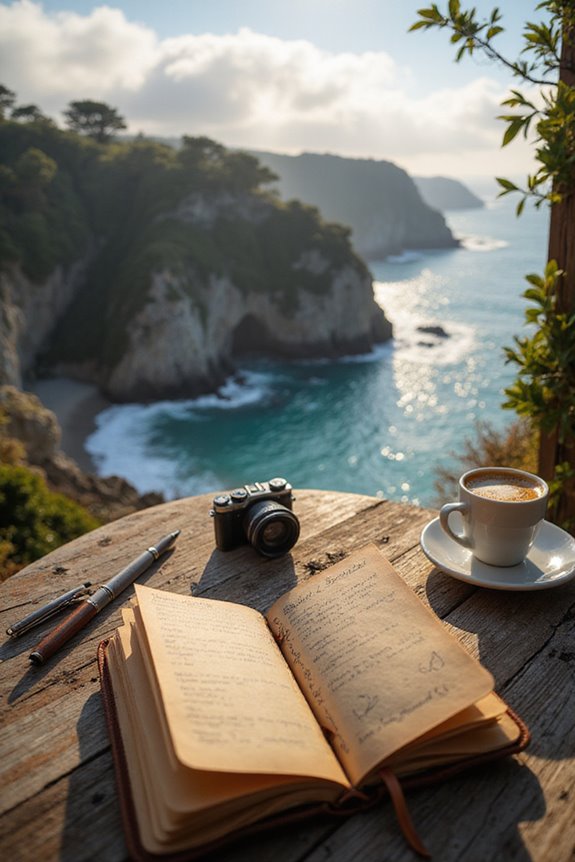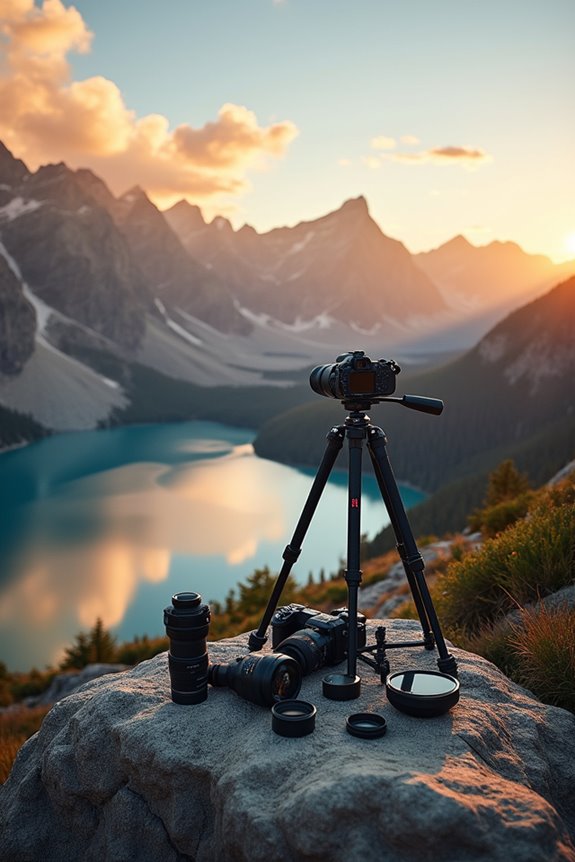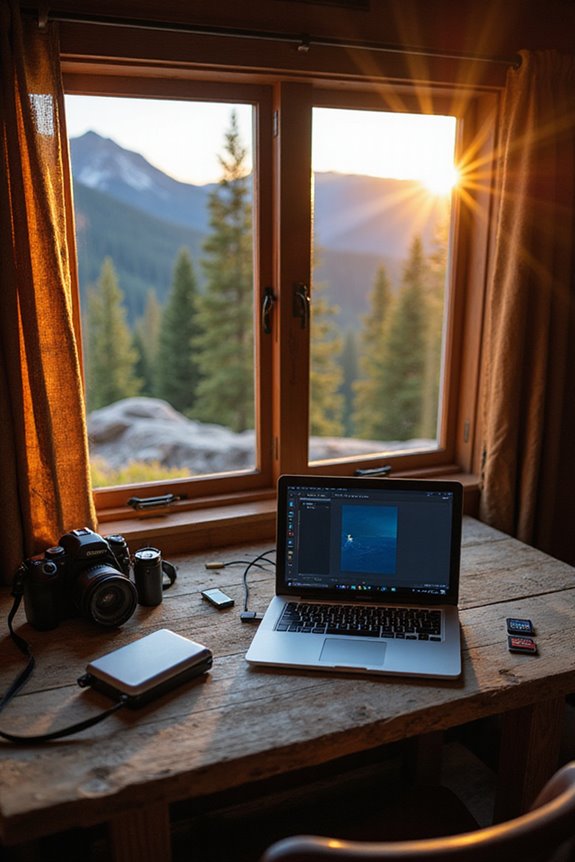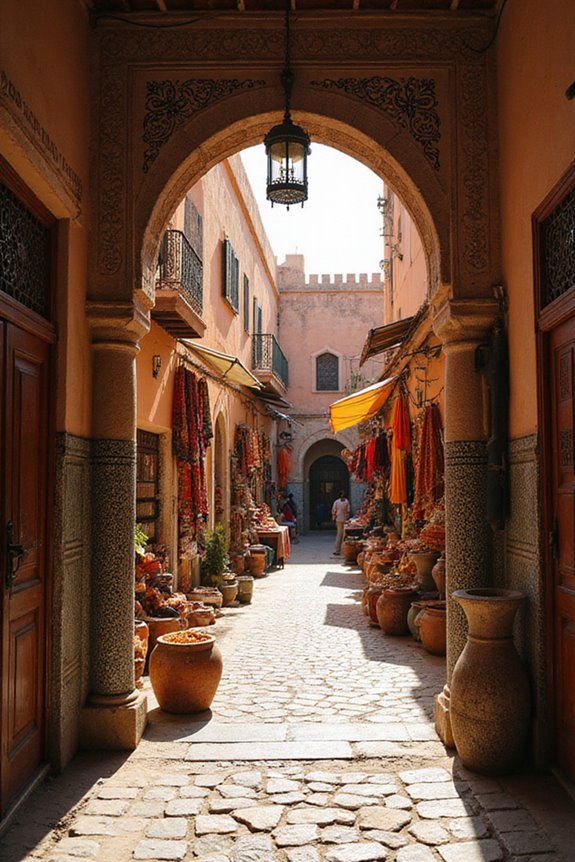To really shine in travel writing, you’ve got to master storytelling, research, and cultural sensitivity. I mean, you want readers to feel like they’re right there with you, right? Throw in some solid interviewing skills to capture local insights, and you’ll be golden. Plus, knowing how to market yourself helps too. So, brush up on those skills, and you’ll be turning your adventures into compelling tales that resonate deeply. Stick around, and you’ll uncover even more tips!
Key Takeaways
- Strong storytelling abilities to create engaging and immersive narratives that captivate readers.
- Proficiency in research and fact-checking to ensure accurate and reliable content.
- Cultural sensitivity and awareness to respectfully engage with diverse communities and practices.
- Effective interviewing skills to gather rich insights and personal stories from locals.
- Marketing knowledge to promote work, build a brand, and monetize travel writing effectively.
Essential Writing Skills for Travel Narratives
When I first dipped my toes into travel writing, I quickly realized that it’s not just about listing sights and activities—it’s about crafting an experience that pulls readers right into the adventure. I learned to sprinkle sensory details throughout my narratives, like the salty sea breeze or the vibrant colors of a bustling market. Creating a solid narrative structure was just as essential; starting with an engaging anecdote hooked my readers instantly. I’d weave in reflections and cultural context, making the journey feel authentic and relatable. By balancing rich descriptions with personal stories, I drew people into my world. With each piece, I aimed to transport them, ensuring they could almost taste the street food and hear the local laughter.
Research and Fact-Checking Techniques
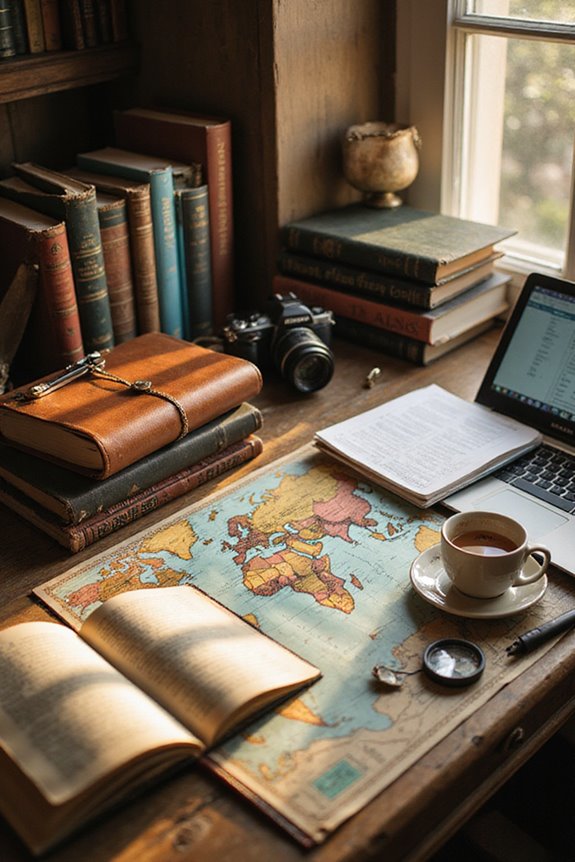
Crafting an enchanting travel narrative is only half the battle; making sure you’ve got your facts straight is the other half. I’ve learned that reliable data sourcing is key. I always start with official tourism websites and local brochures, jotting down every detail—like transport schedules and pricing—in my trusty notebook. It’s a lifesaver! Then comes the verification processes: I double-check everything with multiple sources, even reaching out to local businesses if I can. And let’s not forget the rich context—sensory details from my travels help paint a vivid picture. By balancing facts with personal experiences, I keep my writing authentic and trustworthy. After all, who wants to read about a place that doesn’t even exist?
Cultural Sensitivity and Awareness
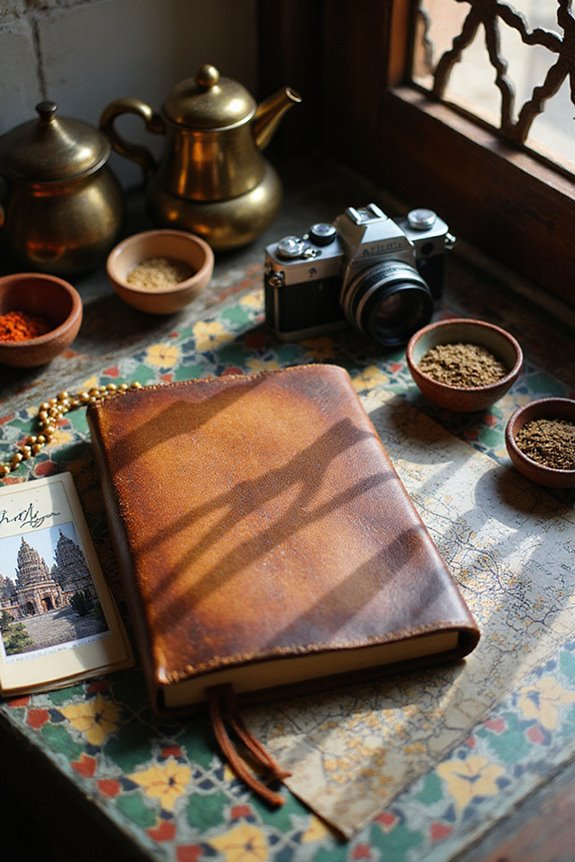
Cultural sensitivity and awareness aren’t just nice-to-haves; they’re essential tools in a travel writer’s kit. When I travel, I immerse myself in cultural exploration, soaking up local customs and traditions. Researching greetings, dress codes, and even taboos can make all the difference. I remember attending a festival, feeling the pulse of the community while being mindful of their values. It taught me that respectful engagement is key. I’ve learned a few phrases in the local language, too—nothing breaks the ice like a friendly “hello” in someone’s tongue! It’s all about appreciating their worldviews, avoiding stereotypes, and fostering empathy. That way, I can share authentic experiences, revealing the beauty of diverse cultures while respecting their unique stories.
Interviewing and Communication Proficiency
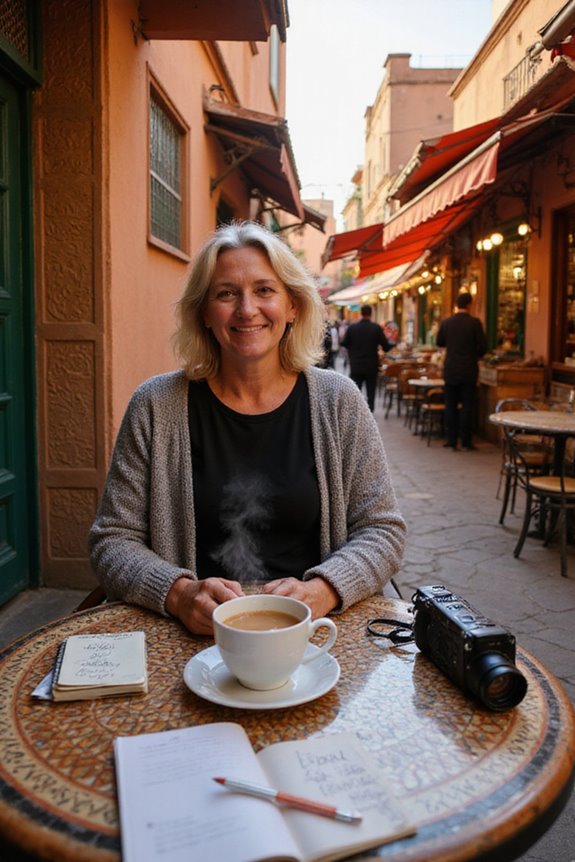
While it might seem intimidating at first, honing your interviewing and communication skills can truly transform your travel writing. I remember my first interview; I fumbled through questions and struggled with communication barriers. But learning effective interview techniques made all the difference. Asking open-ended questions helps draw out rich stories, while active listening allows me to clarify and connect more deeply. Building rapport quickly with diverse subjects opens doors to amazing insights. Plus, mastering clear verbal communication guarantees I get my point across, even when language differences arise. With practice, I’ve learned to adapt my style to fit different cultures, making every interview feel authentic and engaging. Trust me, these skills are key to crafting compelling travel narratives!
Business and Marketing Strategies for Freelancers

After mastering the art of interviewing and communication, the next big challenge for any freelancer is figuring out how to make a living from their passion. I’ve found that developing strong branding strategies is key. By carving out a niche—like specializing in eco-tourism or adventure travel—you can attract consistent opportunities. Now, let’s talk monetization methods. Beyond just writing, you can explore affiliate marketing, sponsored posts, or even sell e-books. Don’t forget social media; it’s essential for reaching a wider audience. Pitching to local brands and tourism boards can be game-changers too. And trust me, building relationships with editors makes a world of difference. Additionally, using tools like travel planners can greatly enhance your organization and efficiency as you manage multiple projects. Stay proactive, and you’ll turn your love for travel into a thriving business!
Frequently Asked Questions
How Do I Choose the Right Destinations for Travel Writing?
When I’m picking destinations for travel writing, I plunge into destination research, seeking cultural immersion. It’s like searching for a hidden gem; I want to share unique stories that resonate with readers and ignite their wanderlust.
What Are Common Pitfalls to Avoid in Travel Writing?
In my experience, avoiding common pitfalls in travel writing means prioritizing research reliability and embracing cultural sensitivity. It’s essential to connect authentically with places, rather than just sharing personal stories that may not resonate with readers.
How Can I Develop a Unique Writing Voice?
Finding your unique writing voice feels like discovering a hidden treasure. I embrace voice experimentation and weave personal storytelling into my narratives, letting my emotions shine through, creating connections that resonate with readers beyond the page.
What Role Does Social Media Play in Travel Writing?
Social media’s impact on travel writing is immense; it enhances audience engagement and allows me to share experiences instantly. Through enthralling visuals and authentic stories, I connect with readers, inspiring their own travel adventures.
How Do I Handle Writer’s Block While Traveling?
“When the going gets tough, the tough get going.” I tackle writer’s block while traveling by using journaling techniques and seeking inspiration sources in my surroundings, allowing creativity to flourish amidst new experiences and reflections.

